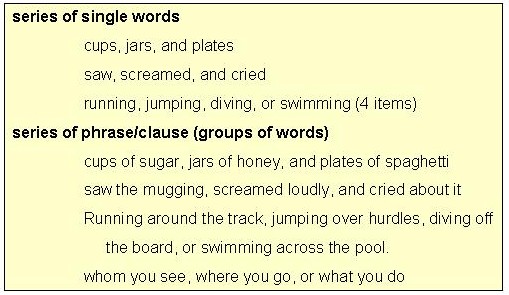How To Use Multiple Commas In A Sentence

Grammatically that sentence is fine.
How to use multiple commas in a sentence. Use a comma after a phrase or clause that precedes the subject of the sentence. There are some cases where you know you should use a comma such as when separating items in a list but there are other times when you might be unsure whether or not a comma is needed. I don t know if it s correct grammar or not. I cannot think of a time i have ever seen a period used like that. Adding a comma can change the meaning of a sentence.
Here s a pop quiz. Commas can be a particularly tricky punctuation mark. For example the rule here says. I m trying to write an about us page of a blog where i m facing issue of using multiple ands and commas. You can also use a comma with a shorter phrase when you want to emphasize it or add a pause for literary effect.
We analyze review compare and discuss the latest trends releases and popular topics. Punctuate the following sentence. In each of these sample sentences the speaker tag interrupts the quotation. As a rule of thumb if the phrase is longer than about four words use the comma. In a long sentence you can use commas to separate out extra information and make the sentence easier to read.
In a sentence with an interrupted quotation the speaker tag is followed by a comma before the quotation marks. I ve never been taught to use the period in a quotation encapsulated within another sentence. Use of multiple ands here seems a bit odd to me. Time for some more dumb rules for interrupted quotations. When a complex sentence contains a dependent clause like this one a comma is not used unless the dependent clause comes before the independent clause.
While there s some degree of flexibility in how commas are used it s important to have a clear grasp of the rules. In a sentence with an interrupted quotation the comma is inside the quotation marks for the first half of a quotation. Use commas to separate words phrases or clauses that appear in a series of three or more because the storm had knocked out the electricity we spent the evening telling ghost stories on the porch. When an adverbial phrase begins a sentence it s often followed by a comma but it doesn t have to be especially if it s short. You don t need commas at all in the last sentence because the word and does the job.


















